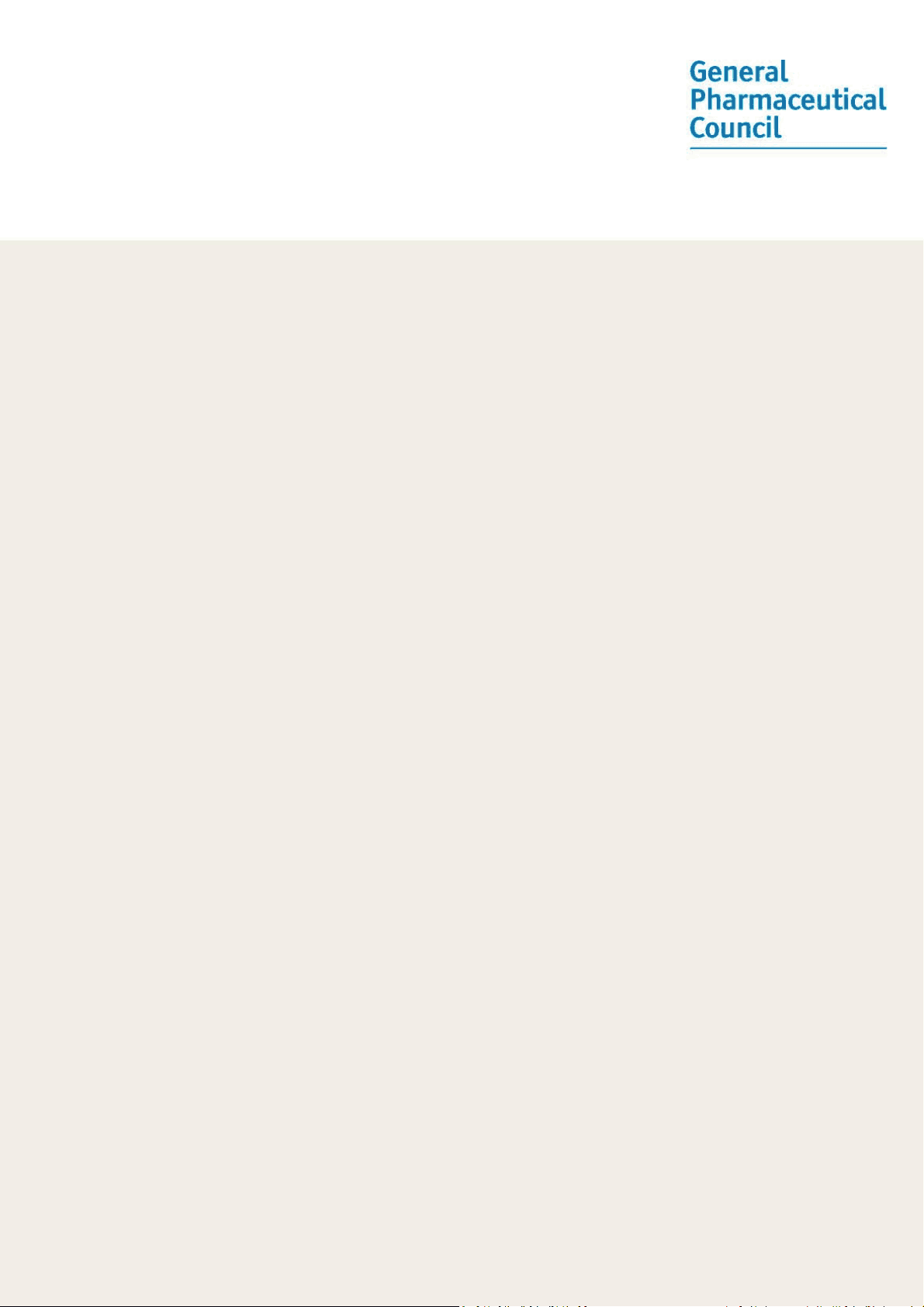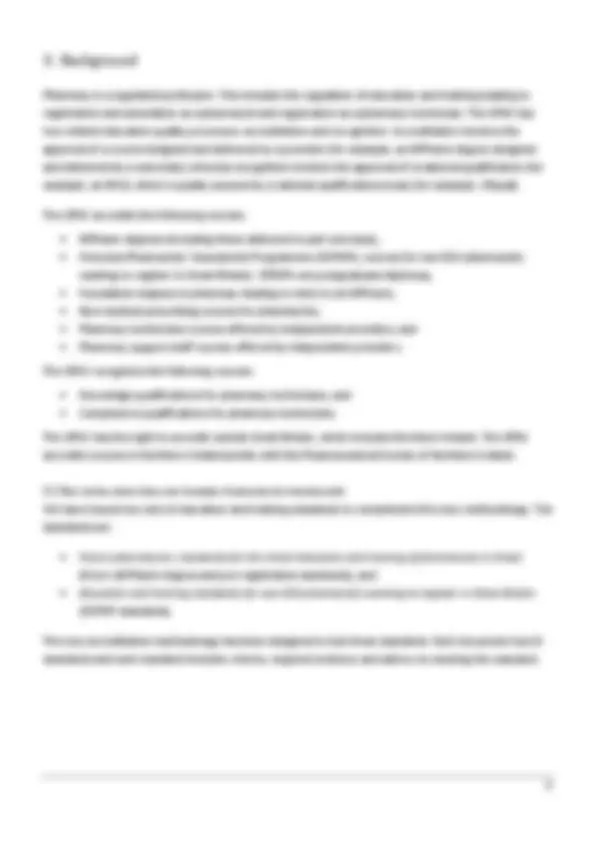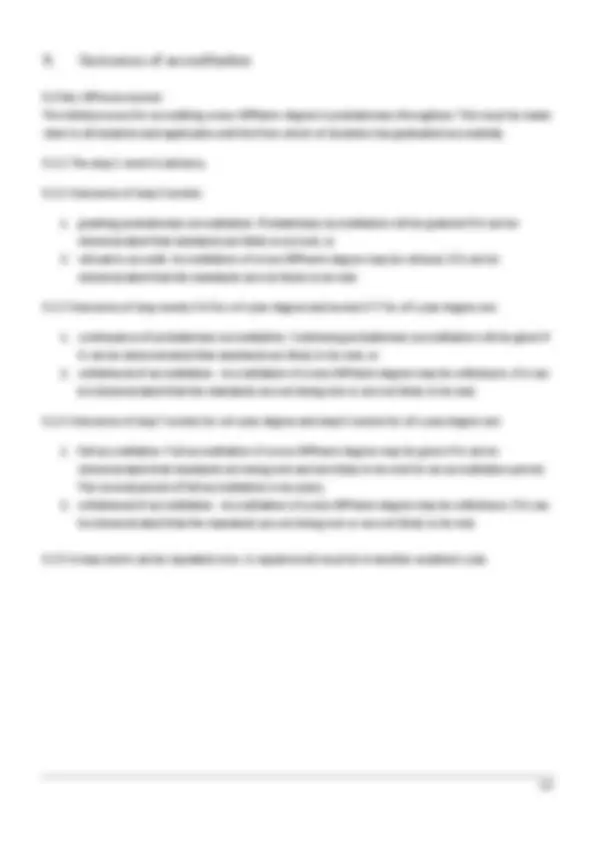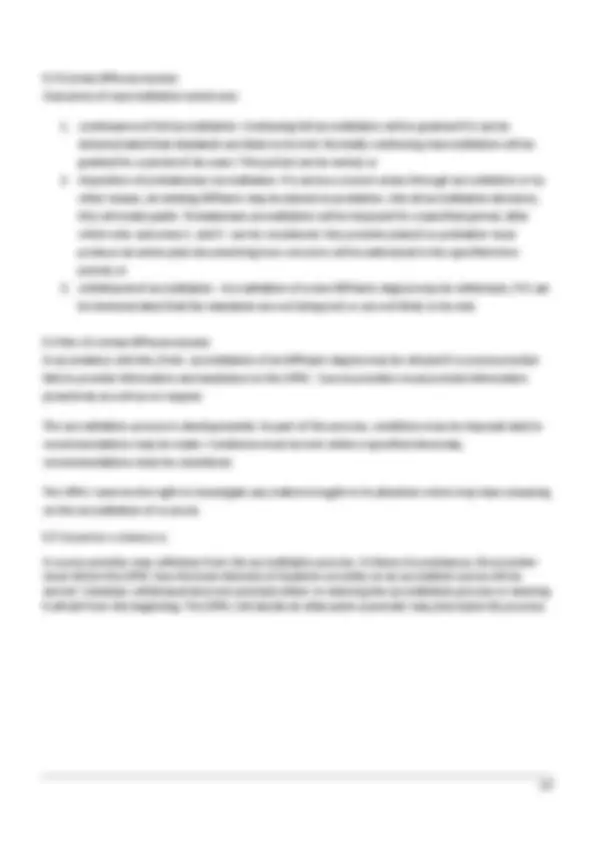











Study with the several resources on Docsity

Earn points by helping other students or get them with a premium plan


Prepare for your exams
Study with the several resources on Docsity

Earn points to download
Earn points by helping other students or get them with a premium plan
Community
Ask the community for help and clear up your study doubts
Discover the best universities in your country according to Docsity users
Free resources
Download our free guides on studying techniques, anxiety management strategies, and thesis advice from Docsity tutors
The General Pharmaceutical Council (GPhC) is the regulator for pharmacists, pharmacy technicians, and pharmacy premises in Great Britain. the functions of the GPhC, the types of pharmacy qualifications they accredit, and the accreditation process for new schools of pharmacy. The document also discusses the importance of patient and public views, resources, and data in the accreditation process.
Typology: Schemes and Mind Maps
1 / 15

This page cannot be seen from the preview
Don't miss anything!










The General Pharmaceutical Council (GPhC) is the regulator for pharmacists, pharmacy technicians and registered pharmacy premises in Great Britain. Part of its education function is to check the standards of courses leading to registration and annotation as a pharmacist. It assumed responsibility for this work on September 27th^ 2010. Prior to that, it was the responsibility of the Royal Pharmaceutical Society of Great Britain (RPSGB).
This is version 2 of this document, which was issued originally in 2011.
Pharmacy is a regulated profession. This includes the regulation of education and training leading to registration and annotation as a pharmacist and registration as a pharmacy technician. The GPhC has two related education quality processes: accreditation and recognition. Accreditation involves the approval of a course designed and delivered by a provider (for example, an MPharm degree designed and delivered by a university) whereas recognition involves the approval of a national qualification (for example, an NVQ) which is quality assured by a national qualifications body (for example, Ofqual).
The GPhC accredits the following courses:
MPharm degrees (including those delivered in part overseas); Overseas Pharmacists’ Assessment Programmes (OSPAPs; courses for non-EEA pharmacists wanting to register in Great Britain). OSPAPs are postgraduate diplomas; Foundation degrees in pharmacy leading to entry to an MPharm; Non-medical prescribing courses for pharmacists; Pharmacy technicians courses offered by independent providers; and Pharmacy support staff courses offered by independent providers.
The GPhC recognizes the following courses:
Knowledge qualifications for pharmacy technicians; and Competence qualifications for pharmacy technicians.
The GPhC has the right to accredit outside Great Britain, which includes Northern Ireland. The GPhC accredits courses in Northern Ireland jointly with the Pharmaceutical Society of Northern Ireland.
3.1 NEW INITIAL EDUCATION AND TRAINING STANDARDS FOR PHARMACISTS We have issued two sets of education and training standards to complement this new methodology. The standards are:
Future pharmacists: standards for the initial education and training of pharmacists in Great Britain (MPharm degree and pre-registration standards); and Education and training standards for non-EEA pharmacists wanting to register in Great Britain (OSPAP standards).
The new accreditation methodology has been designed to test these standards. Each document has 10 standards and each standard includes criteria, required evidence and advice on meeting the standard.
In the standards, we have moved away from a reliance on inputs to an emphasis on outcomes - what students can actually do. The standards are:
Standard 1: Patient and public safety;
Standard 2: Monitoring, review and evaluation of initial education and training;
Standard 3: Equality, diversity and opportunity;
Standard 4: Selection of students and trainees;
Standard 5: Curriculum delivery and the student experience;
Standard 6: Support and development for students and trainees;
Standard 7: Support and development for tutors and academic staff;
Standard 8: Management of initial education & training;
Standard 9: Resources and capacity; and
Standard 10: Outcomes.
The initial education and training for pharmacists in Great Britain comprises a four-year MPharm degree, 52 weeks of pre-registration training and a national Registration Assessment. There is one five- year MPharm degree with intercalated periods of pre-registration training. The new standards refer to pre-registration training but are written, primarily, for the MPharm degree. A five year MPharm with integrated – rather than intercalated - pre-registration training is an aspiration and were such degrees to be introduced, we would revisit this methodology.
3.2 THE PRINCIPLES OF ACCREDITATION This document does not describe every single permutation of the accreditation methodology. Instead it states the principles of accreditation and applies them to one course: the MPharm degree. The methodology as described in this document will be applied to other courses but with variations as appropriate.
The principles are that accreditation is:
Diagrammatically, the methodology can be summarised as:
Submit document
Pre-visit
Main visit
Report
Registrar/Cou ncil decision
Three year practice visit
Revisit after six years
As well as receiving periodic visits, schools of pharmacy must submit an annual return about student numbers, staffing, funding and student fitness to practise. We intend to integrate the annual return into the accreditation methodology to provide accreditors with a more dynamic profile of a school. This should enable us to identify schools which are at higher risk and those at lower risk. Our principal concern is the standard of courses but we accept that resources have a bearing on standards. In time we may consider varying the periodic cycle of visits for particular schools on the basis of heightened or lower risk derived from our data set.
Through the annual return we intend to monitor student fitness to practise so we build up a national picture of key themes and issues.
4.2 A PRACTICE VISIT As has been explained, the reporting requirements for education standards in the Order are more explicit than in previous legislation. Because ‘nature, content and quality’ must be covered, teaching/learning and placement activities need to be observed. The practice visit will take three years after a main visit and the results of the visit will form an appendix to the main report. Because we will be observing activities that are already timetabled, there will be minimal intrusion and the visits will not be a significant burden on institutions. Practice visits will take place at the university and placement sites.
The practice visit is not a secondary accreditation and the GPhC’s accreditation judgement from the main visit will stand unless evidence comes to light requiring it to be reconsidered. This evidence could come from a practice visit or from any other source or activity.
Separately, we will issue an operational document for practice visits. This will clarify the mechanics of a visit and what is required of schools.
4.3 THE CYCLE OF ACCREDITATION The main accreditation cycle has been extended from five years to six. This means there is an engagement with a provider every three years.
Under each standard in Future Pharmacists there are data requirements, which form the core data set. In summary they are:
Patient and public views : Increasingly, schools are using the views of patients and the public to inform course design and delivery. We will expect to see evidence of this; Staffing : Evidence of how the staffing mix will deliver an MPharm degree of the right standard; Resources : Evidence of how they are sufficient to support the design and delivery of a master’s degree; Strategies for teaching, learning and assessment. We have emphasised the importance of feedback in assessment. We would observe that modular courses tend to over assess, sometimes at the expense of more useful timely feedback; Pre-registration trainee/recent registrant evaluation report involving the last 3 years of trainees and recent registrants; External examiners’ reports for the last three years ; Internal quality reports and evaluations, including minutes of staff-student committees ; Academic regulations : Principally, our scrutiny of academic regulations will be to ensure that threshold standards are being maintained and that pass criteria are true pass criteria; Practice/placement report from interim visit; Annual data return from schools; Registration Assessment/Examination data for the last three years.
Note: This timeline is indicative.
The initial process for accrediting a new MPharm degree is probationary throughout. This must be made clear to all students and applicants until the first cohort of students has graduated successfully.
9.2.1 The step 1 event is advisory.
9.2.2 Outcomes of step 2 events:
9.2.3 Outcomes of step events 3-6 for a 4-year degree and events 3-7 for a 5-year degree are:
9.2.4 Outcomes of step 7 events for a 4-year degree and step 8 events for a 5-year degree are:
9.2.5 A step event can be repeated once. A repeat event must be in another academic year.
Outcomes of reaccreditation events are:
9.4 NEW & EXISTING MPHARM DEGREES In accordance with the Order , accreditation of an MPharm degree may be refused if a course provider fails to provide information and assistance to the GPhC. Course providers must provide information proactively as well as on request.
The accreditation process is developmental. As part of the process, conditions may be imposed and/or recommendations may be made. Conditions must be met within a specified timescale; recommendations must be considered.
The GPhC reserves the right to investigate any matter brought to its attention which may have a bearing on the accreditation of a course.
9.5 VOLUNTARY WITHDRAWAL
A course provider may withdraw from the accreditation process. In these circumstances, the provider must inform the GPhC how the best interests of students currently on an accredited course will be served. Voluntary withdrawal does not preclude either re-entering the accreditation process or entering it afresh from the beginning. The GPhC will decide at what point a provider may join/rejoin the process.